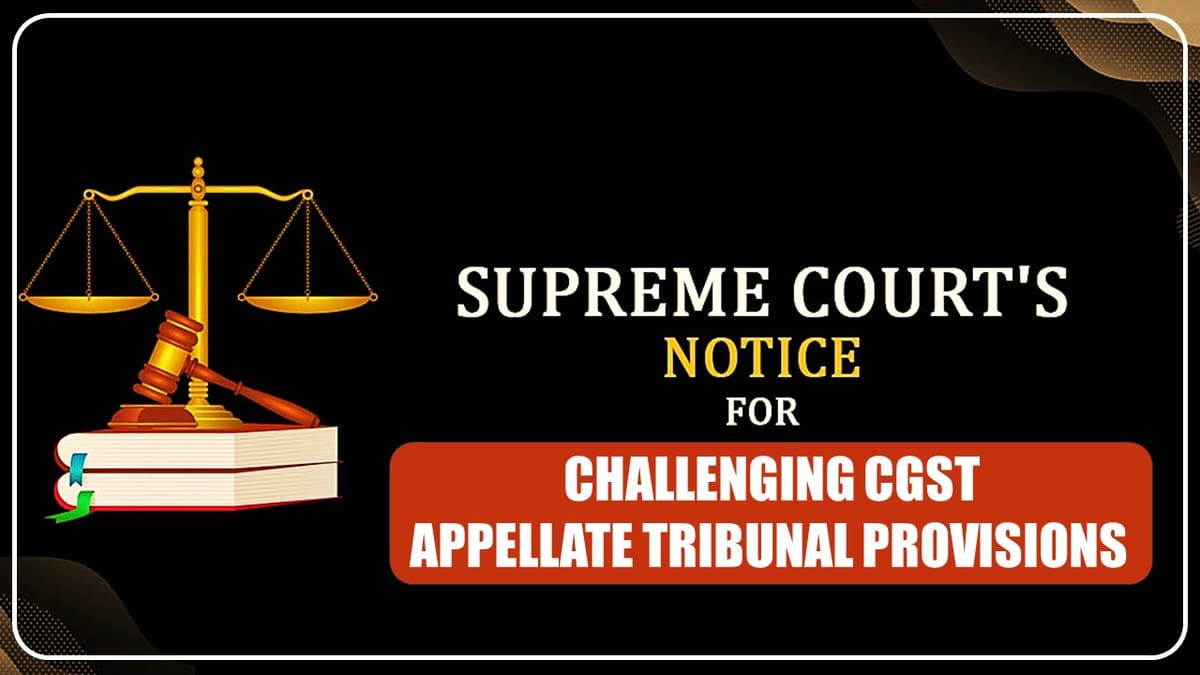Priyanka Kumari | Nov 28, 2023 |

STBA Files Petition Challenging CGST Appellate Tribunal Provisions, Supreme Court Issues Notice
The Supreme Court, in the matter of SALES TAX BAR ASSOCIATION (REGD.) Vs. UNION OF INDIA, has recently issued a writ petition notice challenging the constitutionality of sections 149 and 150 of the Finance Act, 2023, which seek to substitute Sections 109 and 110 of the Central Goods and Services Tax Act, 2017 (CGST Act). These provisions applied to the appointments and service conditions of members of the CGST Act’s Appellate Tribunal.
Section 109 provides for the formation of the Goods and Services Tax Appellate Tribunal, while Section 110 details the appointment, qualification, and terms of service of the President and Members of the Appellate Tribunal.
The petition challenges different sections of the bill based on legal precedents set by Madras Bar Association decisions from 2010 to 2021. Notably, the Bench has linked this petition with a different contest the Tribunals Reforms (Rationalisation and Conditions of Service) Ordinance 2021, currently known as the Tribunals Reforms Act, 2021.
The petitioners challenge the lawful status of these provisions on several grounds:
“The government’s unilateral power to assign members severely weakens the principle of separation of powers” according to the petition.
Finally, the petitioner strengthens these arguments by citing the 272nd Law Commission report, which matches its recommendations with the prior judgments. As a result, the petitioners contend that the current provisions are in direct conflict with these suggestions and established principles.
For official Judgement Download the PDF Given Below:
In case of any Doubt regarding Membership you can mail us at contact@studycafe.in
Join Studycafe's WhatsApp Group or Telegram Channel for Latest Updates on Government Job, Sarkari Naukri, Private Jobs, Income Tax, GST, Companies Act, Judgements and CA, CS, ICWA, and MUCH MORE!"